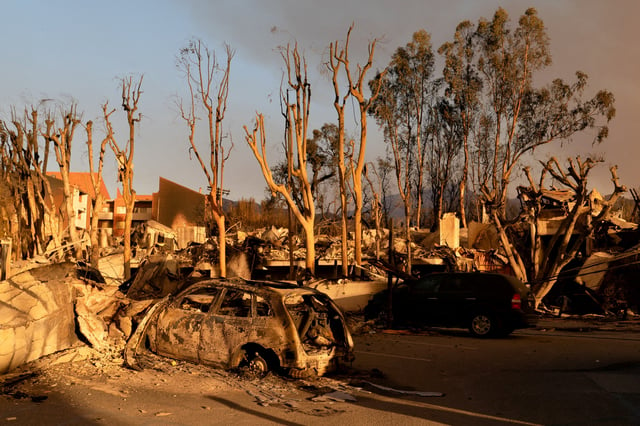Overview
- January 2025 was the warmest month ever recorded globally, with an average surface air temperature of 13.23°C, exceeding the critical 1.5°C warming threshold above pre-industrial levels.
- This marks the 18th month out of the last 19 with global temperatures above the 1.5°C threshold, defying expectations of cooling from La Niña conditions in the Pacific.
- Scientists attribute the record-breaking temperatures to the long-term effects of greenhouse gas emissions, with concerns that climate change is overwhelming natural cooling patterns.
- Extreme weather events accompanied the heat, including devastating wildfires in Los Angeles that destroyed 11,000 homes and hurricane-force winds from Storm Eowyn in the UK.
- Experts warn that urgent global action is needed to phase out fossil fuels, reduce emissions, and develop resilience strategies against increasingly severe climate impacts.


